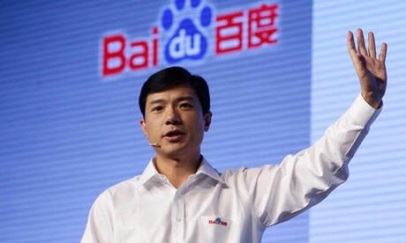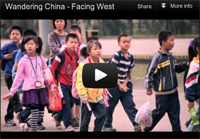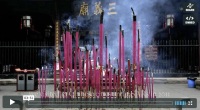It is doubtable Chinese strategists are overly concerned in being drafted in to compete in this imagined superpower arena – largely a battle of capturing the imagination of the majority of mindshare as to who rules the hegemonic roost.
Deng spoke of this in his address to the UN almost thirty years ago. He had a dim view of the intents of superpowers. Sensing it is more a distraction than destination the Chinese have made plain their strategies to consolidate and spread equitable development, right down to sticking to its independent foreign policy of peace (since 2003) for the next five to ten years. At least the Chinese have a working and efficient plan in place. They make it plain to see meaning it is all up for public scrutiny. In rural villages, they are summarized and inscribed onto street notice walls.
It is not hard to see how problems can arise as one gets rich too quickly. I have met those who turned from sheep farmer to Land Cruiser own within the span of a few years. But lest we forget, they are the first generation of exposure to a new social compact. Perhaps the yardstick is better measured how the next line of inheritors of the Chinese legacy fare against their global peers. More and more Chinese leave the motherland to study foreign ways but tellingly, more often than not, Chinese students I meet here look forward or feel compelled to return home.
Overseas, hotspots across the straits and those in the East and South China Sea are down to legacy issues conventional international diplomacy may not be be able to fix. Their outcomes may be limited in shaping or influencing domestic public opinion in the media saturation especially those with access to the digital revolution.
– – –
China finding superpower path no cakewalk
By Richard Wike, Special to CNN
Source – CNN GPS, published August 6, 2013

Editor’s note: Richard Wike is associate director of the Pew Research Center’s Global Attitudes Project. Follow him on Twitter @RichardWike. The views expressed are the writer’s own.
It’s not easy being a superpower, and that’s something China is learning. A few years back, international headlines featured breathless accounts of China’s economic transformation and rave reviews of the Beijing Olympics. But today, news stories often portray a country battling over disputed territories overseas, while struggling at home with vexing issues such as pollution, corruption, and political dissent. China’s power is growing, but as it assumes a more prominent role on the world stage, its global reputation is beset by a host of challenges. Welcome to the travails of being one of the big boys on the block.
While China’s rise has been the subject of considerable debate among elites in recent years, ordinary citizens around the world have also taken note, and for many it’s a troubling development. Pew Research Center polling has shown that a growing number of people see China as the world’s leading economic power. Moreover, people not only see the economic balance of power shifting; many believe that in the long run, China will surpass the U.S. as the overall leading superpower. Across the 39 countries included in a spring 2013 Pew Research poll, a median of 47 percent say China has already replaced the U.S. as the leading superpower or will eventually do so. Just one third think China will never supplant the United States.
But, as the U.S. has often learned, power does not necessarily generate affection. More typically, it creates anxiety. In regions throughout the world, people worry about how a superpower will use its clout and how it will behave in the international arena. For instance, our polling has consistently found majorities in most countries saying the U.S. ignores their interests when making foreign policy decisions – this was true during the George W. Bush era and it remains largely true today.
Please click here to read the entire article at its CNN GPS.
Read the rest of this entry »
Filed under: Beijing Consensus, Charm Offensive, China Dream, Chinese Model, CNN, Culture, Democracy, Domestic Growth, East China Sea, Economics, Education, Government & Policy, Greater China, Hukou, Human Rights, Ideology, Influence, Intellectual Property, International Relations, Mapping Feelings, Media, Modernisation, New Leadership, Peaceful Development, Politics, Population, Public Diplomacy, Reform, Resources, Social, Soft Power, Strategy, Tao Guang Yang Hui (韬光养晦), The Chinese Identity, The construction of Chinese and Non-Chinese identities, Trade, U.S.






















The Sharing Circle